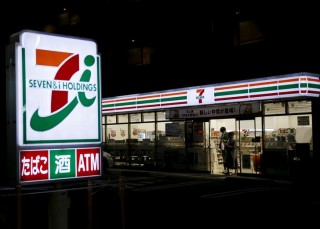Loading
Search
▼ Seven-Eleven Japan To End Some 24-Hour Operations Amid Labor Crunch
- Category:Other
TOKYO - Seven-Eleven Japan Co said Monday it will end 24-hour operations at some outlets, becoming the first major convenience store operator to scale back around-the-clock hours to address a labor crunch.
Eight stores will begin cutting back on their operating hours from Nov 1, as they are finding it increasingly difficult to staff the night shift.
Additional stores may also shorten their operating hours, joining some 200 outlets, out of a total of 21,000 nationwide that are currently trying out shorter hours on a trial basis.
"We will talk with shop owners in line with our new guidelines. They will make a final decision" on whether to shorten operating hours, Seven-Eleven Japan President Fumihiko Nagamatsu said at a press conference.
Japan's biggest convenience store operator by number of outlets introduced the 24-hour business in 1975. The around-the-clock operations are also aimed at improving efficiency, by allowing things like restocking shelves during late-night hours, the operator said.
But Seven-Eleven Japan decided to try out the shorter operating hours after a franchise owner in Osaka stirred controversy, saying he cut business hours at his store without getting approval from the franchise operator because of a labor shortage.
Among other major convenience store chains, FamilyMart Co said 612 stores, or 3.7 percent of its overall franchise outlets, are also trying out shorter hours on a trial basis.
A FamilyMart spokesman said the company will decide whether to end its 24-hour operations after the trial is over.
Lawson Inc. said about 100 of its stores currently stop operating overnight, as contracts with franchise owners do not require being open for 24 hours. Still, to mitigate the labor shortage, the company has decided to close about 100 outlets on New Year's Day next year.
Labor scarcity poses a serious threat to other industries, including restaurant, construction and nursing care, as Japan's population rapidly grays.
Japan's workforce is projected to drop 20 percent in 2040 from 2017 levels due to an overall population decline, but that could be mitigated by more women and seniors joining the workforce, a government study showed earlier this year.
Japan started a new visa system in April to bring in more foreign workers to help industries struggling with an acute labor shortage.
© KYODO
- October 22, 2019
- Comment (0)
- Trackback(0)


